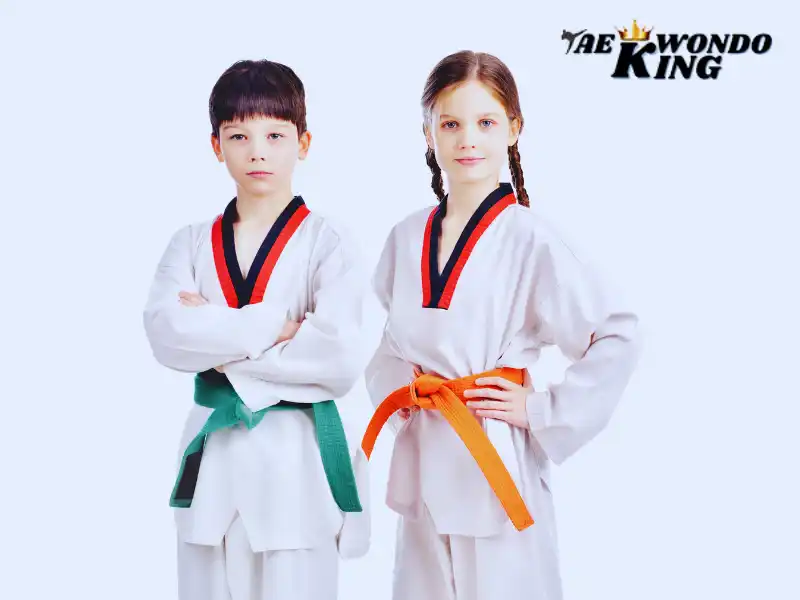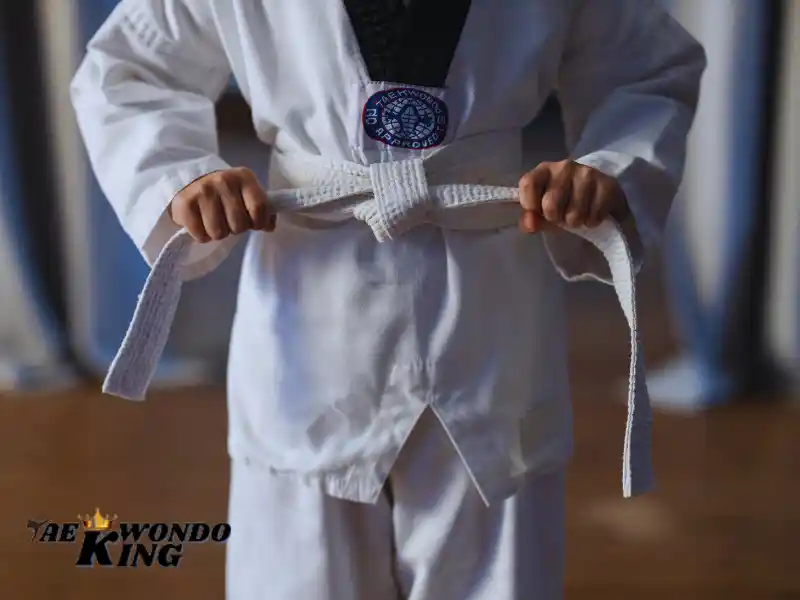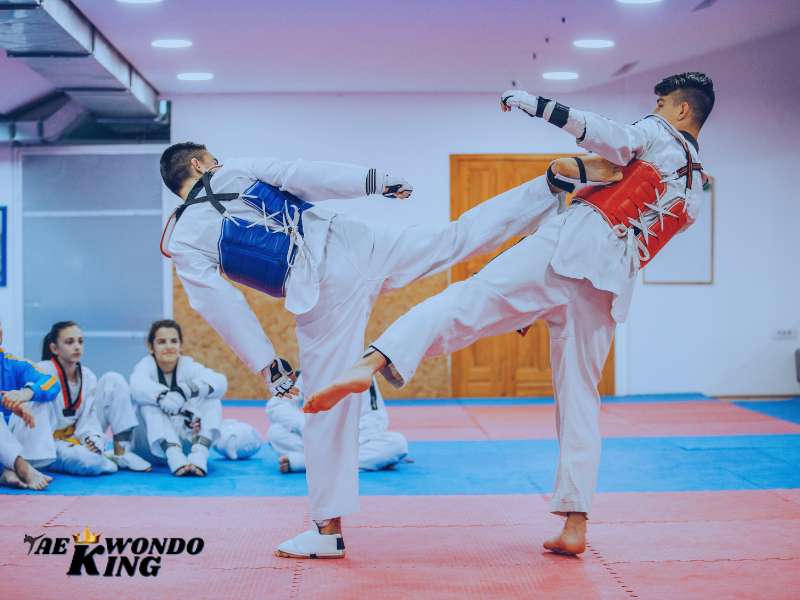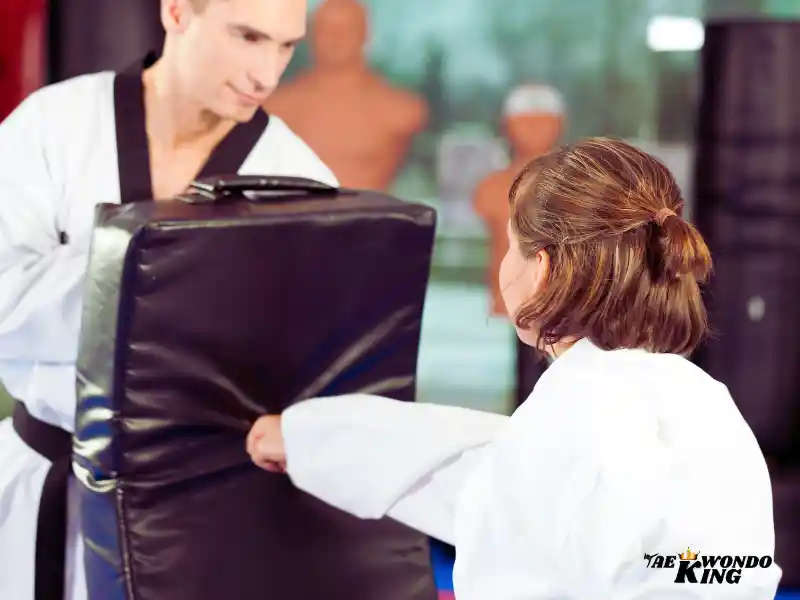
I used to think martial arts were just for kids or action movie stars, until I saw how many older people do Taekwondo and thrive. At first, I felt out of place, but then I met folks in their 60s and even 70s kicking, stretching, and smiling like teenagers. I’ve since joined their ranks, and it’s changed how I see aging, movement, and confidence.
In this article, I’ll share why Taekwondo isn’t just possible later in life, it might be exactly what your body and mind need. If you’ve ever wondered whether you’re too old to start, let me show you why now is the perfect time.
The world of martial arts is often associated with youthful exuberance, flexibility, and boundless energy. However, the notion that martial arts are exclusively reserved for the young couldn’t be further from the truth. Taekwondo, a dynamic and disciplined martial art, is a timeless pursuit that transcends age barriers. Contrary to popular belief, older individuals can not only engage in Taekwondo but also thrive, reaping a plethora of physical, mental, and emotional benefits.
Some people think that older people cannot do taekwondo. A lot of people do taekwondo because it is a very effective form of exercise. You don’t have to do much to practice this martial art. It is easier to do than run. Just take a good grip on the handle of the kettlebells and use your arms to punch the air or use your legs to kick the air.
You can use a partner to help you with your exercises. If you are doing taekwondo alone, you can practice it at home. All you need to do is pick up a kettlebell and then practice the movements described above. If you are interested, you can find more information about Taekwondo on this website and the Internet.
Check out the latest prize in Taekwondo equipment on Amazon.

Physical Fitness Knows No Age
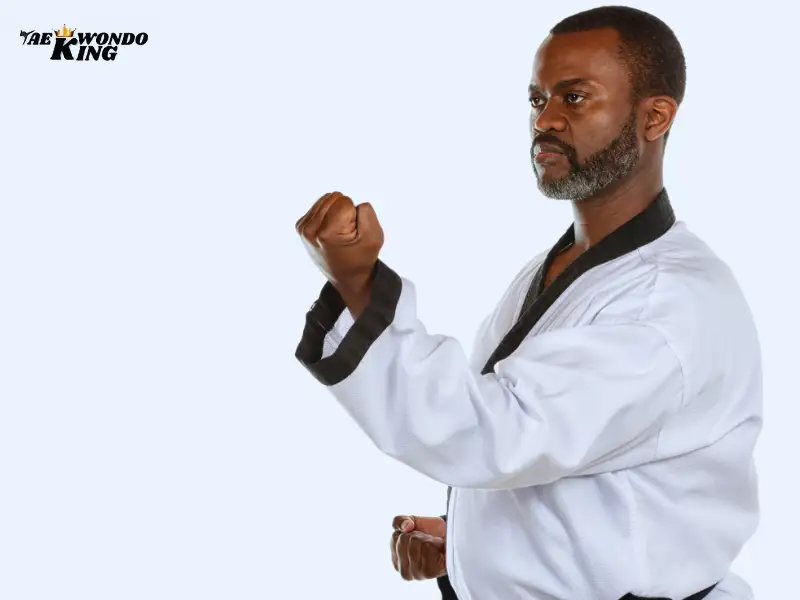
It’s a common misconception that as age advances, physical activity becomes limited, and rigorous endeavors such as martial arts become unattainable. Taekwondo, however, defies this notion. How Can Older People Do Taekwondo? The art’s emphasis on controlled movements, flexibility, and gradual progression makes it an ideal fitness regimen for older individuals.
Flexibility Enhancement: Taekwondo’s emphasis on stretching and kicking drills can lead to improved flexibility and range of motion. This is particularly beneficial for older practitioners, as enhanced flexibility promotes joint health, reduces the risk of injury, and enhances overall mobility.
Muscular Strength: Taekwondo training involves various bodyweight exercises, resistance training, and striking techniques that target muscle groups throughout the body. This holistic approach aids in maintaining and building muscular strength, contributing to improved posture and overall physical stability.
Cardiovascular Endurance: Taekwondo workouts, which often include aerobic exercises, sparring, and drills, boost cardiovascular health. Enhanced endurance not only increases energy levels but also improves overall vitality and longevity.
Balance and Coordination: Taekwondo’s focus on balance and precise movements can counteract age-related decline in coordination. The practice of forms (poomsae) and techniques cultivates better body control, reducing the risk of falls and improving overall balance.
Check out the latest prize in Taekwondo equipment on Amazon.

Mental Resilience and Cognitive Benefits

Taekwondo isn’t solely a physical pursuit; it engages the mind in ways that contribute to cognitive well-being and mental resilience. How Can Older People Do Taekwondo? Older practitioners stand to gain a multitude of mental benefits from their Taekwondo practice.
Mental Focus: The execution of precise techniques and forms requires concentration and mindfulness. Engaging in these mental challenges enhances cognitive function, keeping the mind sharp and alert.
Stress Reduction: Taekwondo provides a healthy outlet for stress relief, promoting emotional well-being. Practitioners can channel their energy and emotions into their training, experiencing a sense of accomplishment and tranquility.
Problem-Solving Skills: Taekwondo involves strategic thinking and decision-making during sparring and self-defense scenarios. This mental engagement stimulates problem-solving skills, which can be carried over to daily life.
Emotional Resilience: The discipline and self-control cultivated in Taekwondo practice extend beyond the training mat, enhancing emotional resilience and promoting a positive outlook on life.
Personal Growth and Empowerment
Taekwondo offers a platform for personal growth and empowerment, regardless of age. The journey of learning and progress can be particularly meaningful for older practitioners.
Goal Setting: Older individuals embarking on their Taekwondo journey often set personal goals, whether it’s achieving a certain belt rank, mastering a specific technique, or participating in a tournament. These goals provide a sense of purpose and motivation.
Self-Confidence: As older practitioners overcome challenges and witness their progress, their self-confidence naturally grows. Accomplishments on the training mat translate into heightened self-assurance in various aspects of life.
Adaptability: The ability to adapt and learn new skills is fundamental to Taekwondo. Older practitioners who embrace this adaptability experience a sense of accomplishment and empowerment, dispelling limiting beliefs about their capabilities.
Community and Connection: The Taekwondo community welcomes practitioners of all ages, providing a supportive environment where older individuals can connect with peers, share experiences, and cultivate meaningful friendships.
Check out the latest prize in Taekwondo equipment on Amazon.

Tailored Approach and Considerations
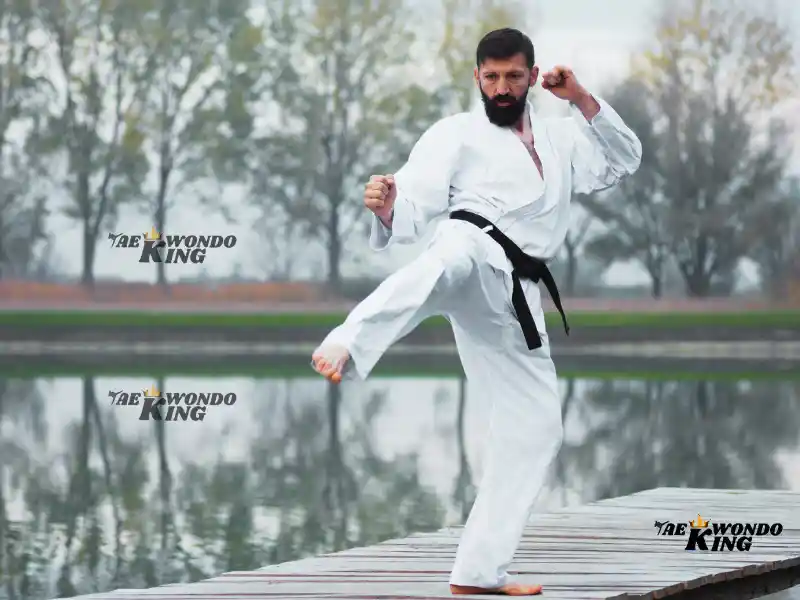
For older individuals interested in pursuing Taekwondo, it’s essential to approach training with mindfulness and consideration of individual needs and limitations.
Consultation: Before beginning any exercise regimen, especially a martial art like Taekwondo, it’s advisable to consult a medical professional. A health assessment can help tailor the training to individual needs.
Progression: Taekwondo instructors can tailor training to accommodate older individuals, focusing on gradual progression and techniques that suit their physical capabilities.
Adaptive Training: Certain Taekwondo techniques may be modified to ensure safety and comfort. Instructors can provide alternatives or adjustments that allow older practitioners to fully participate.
Recovery and Rest: Adequate rest and recovery are crucial for older practitioners. Paying attention to the body’s signals and allowing ample time for recovery ensures sustained progress and prevents overexertion.
Breaking Stereotypes: The Ageless Appeal of Taekwondo
Physical Fitness Knows No Age: While the physical demands of Taekwondo might seem daunting, they are adaptable to accommodate different fitness levels and age groups. Taekwondo training can be tailored to older adults, focusing on gentle warm-ups, controlled movements, and gradual progress.
Improved Flexibility and Mobility: Taekwondo places a significant emphasis on flexibility, which is especially beneficial for older adults. Stretching routines, kicking drills, and dynamic movements gradually enhance joint mobility, reducing the risk of stiffness and promoting a better range of motion.
Enhanced Balance and Coordination: As people age, maintaining balance becomes increasingly important. Taekwondo’s precise techniques, stances, and kicking exercises help improve balance and coordination, ultimately reducing the risk of falls and injuries.
Mental Clarity and Cognitive Benefits Older people do Taekwondo
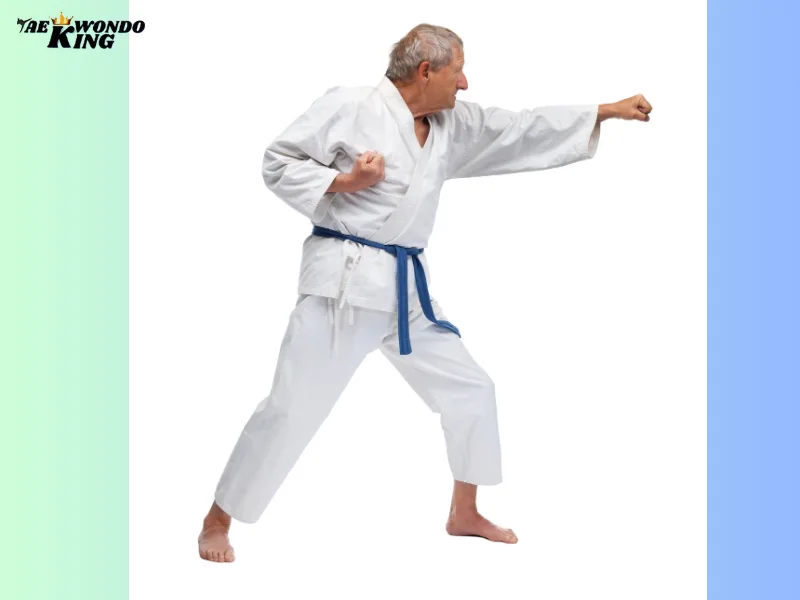
Sharper Cognitive Function: Engaging in Taekwondo challenges the mind as much as the body. The learning of forms (poomsae) and sequences fosters mental acuity, memory retention, and cognitive processing, helping older individuals stay mentally sharp.
Stress Relief and Emotional Well-Being: The focus required during Taekwondo training promotes mindfulness and stress relief. For older adults dealing with the challenges of aging, Taekwondo offers a healthy outlet to release tension, improve mood, and boost overall emotional well-being.
Conclusion
Age should never be a deterrent to embarking on a fulfilling and transformative Taekwondo journey. Older individuals who choose to embrace this martial art stand to gain a myriad of physical, mental, and emotional benefits that contribute to a higher quality of life. Taekwondo’s emphasis on physical fitness, mental resilience, personal growth, and community connection makes it a holistic and rewarding pursuit for individuals of all ages. As older practitioners step onto the training mat, they embark on a path of empowerment, vitality, and self-discovery that defies the limitations often associated with age.
Check out the latest prize in Taekwondo equipment on Amazon.

FAQs
Can older People attain a black belt in Taekwondo?
Yes, older individuals can achieve a black belt in Taekwondo. Age does not hinder one’s progress in martial arts, and people of any age can learn and improve in their training. However, the amount of time and effort needed to attain a black belt may differ based on an individual’s physical capabilities and commitment to training.
Can older individuals achieve flexibility in Taekwondo?
Yes, older individuals can still achieve flexibility in Taekwondo. Flexibility can be trained and improved at any age. Regular stretching exercises and proper warm-up routines can help older individuals increase their flexibility over time. It is important to start slowly and listen to your body to avoid injuries.
Can older People achieve strength and endurance in Taekwondo?
Yes, older people can achieve strength and endurance in Taekwondo. Age is not a barrier to physical fitness and martial arts training. With regular practice, older individuals can improve their strength, flexibility, balance, and cardiovascular fitness through Taekwondo training. It is important to work at your own pace and consult with a qualified instructor who can tailor the training to your specific needs and abilities.
Can older People acquire self-defense skills in Taekwondo?
Yes, older individuals can certainly learn self-defense skills in Taekwondo. Taekwondo is a martial art that prioritizes agility, flexibility, and technique rather than sheer strength. It can be modified to cater to people of all ages and fitness levels. Numerous Taekwondo schools provide classes specifically tailored for older adults, concentrating on self-defense techniques that are useful and efficient for their needs. With appropriate instruction and guidance, older individuals can acquire and reap the advantages of Taekwondo training.
Can older individuals achieve balance and coordination in Taekwondo?
Yes, older individuals can achieve balance and coordination in Taekwondo. Taekwondo is a martial art that focuses on flexibility, strength, and control, all of which help improve balance and coordination. With proper training and practice, people of all ages can enhance their balance and coordination skills. It is important to consult with a qualified instructor who can customize the training program to meet the individual’s specific needs and abilities.
Can older individuals achieve their fitness goals?
Yes, older individuals can achieve their fitness goals. It is important to consult with a healthcare professional or a fitness trainer to determine appropriate exercise routines and modifications based on individual capabilities and any underlying health conditions. Regular exercise, a balanced diet, and consistency are key for older individuals to improve strength, flexibility, cardiovascular health, and overall well-being.
Can older individuals achieve weight loss?
Yes, older individuals can achieve weight loss. Although it may be more difficult due to factors such as a slower metabolism and possible muscle loss, it is still possible. A combination of healthy eating, regular exercise, and lifestyle changes can be effective in achieving weight loss at any age. It is always advisable to consult with a healthcare professional before starting any weight loss program, especially for older individuals who may have additional health concerns.
Check out the latest prize in Taekwondo equipment on Amazon.


Founder, Owner, and CEO of TaekwondoKing.
He is one of the top 100 martial artists in the World and among the top 20 referees in Bangladesh.
Ehatasamul Alom is an esteemed Kukkiwon Certified Taekwondo 3rd Dan Black Belt with over 15 years of experience in this dynamic martial art. Born in Rajshahi, Bangladesh, Ehatasamul’s journey with Taekwondo began at the tender age of seven. His passion led him to compete at national and international levels, where he has bagged numerous awards and honors. He is also a member of the Taekwondo National Referee Panel.
With a Bachelor’s degree in Sports Science from the prestigious Rajshahi University, Ehatasamul has a deep understanding of the technical and scientific aspects of martial arts and some other martial arts.
In 2022, Ehatasamul created the “TaekwondoKing.com” to share his knowledge, Free Resources, Values, and Real experiences. His articles focus on Taekwondo training techniques, competition strategies, Sport Products Reviews, and the art’s rich history and philosophy. He also writes about the importance of mental fortitude and discipline, key aspects of his teaching philosophy. He has already launched many sports, Taekwondo, and health-related Free online tools. His goal is to inspire both beginners and seasoned practitioners worldwide through insightful and engaging content.
If you need any help, contact Ehatasamul Alom at any time.

